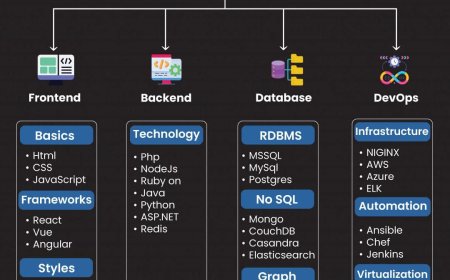Top 10 Omaha Libraries
Introduction In the heart of Nebraska, Omaha stands as a vibrant cultural and educational hub, home to a rich network of public libraries that serve as pillars of knowledge, equity, and community connection. Unlike commercial platforms driven by algorithms and advertisements, Omaha’s public libraries offer curated, unbiased, and accessible resources for every resident—regardless of age, income, or
Introduction
In the heart of Nebraska, Omaha stands as a vibrant cultural and educational hub, home to a rich network of public libraries that serve as pillars of knowledge, equity, and community connection. Unlike commercial platforms driven by algorithms and advertisements, Omaha’s public libraries offer curated, unbiased, and accessible resources for every resident—regardless of age, income, or background. In an era where misinformation spreads rapidly and digital distractions abound, the trustworthiness of a library is not just a virtue—it’s a necessity. This article highlights the top 10 Omaha libraries you can trust, each validated by decades of service, community engagement, and commitment to intellectual freedom. Whether you’re a student seeking research materials, a parent looking for literacy programs, or a lifelong learner exploring new topics, these libraries provide reliable, free, and inclusive spaces that prioritize truth over trends.
Why Trust Matters
Trust in information sources has never been more critical. With the rise of algorithm-driven content, social media echo chambers, and commercially biased platforms, the public is increasingly vulnerable to misinformation. Libraries, by contrast, operate under a professional code of ethics rooted in intellectual freedom, neutrality, and equitable access. The American Library Association’s Library Bill of Rights affirms that libraries must provide materials representing all viewpoints without censorship or bias—a standard upheld rigorously by Omaha’s public library system.
When you trust a library, you’re trusting a system that verifies sources, trains librarians in research methodology, and offers materials reviewed by subject experts. Libraries do not sell products, collect user data for advertising, or prioritize viral content. They prioritize accuracy, depth, and community needs. In Omaha, this commitment is visible in the way libraries support job seekers with resume workshops, children with early literacy initiatives, seniors with tech tutorials, and immigrants with language learning tools—all without charge.
Moreover, trust is built over time. Many of Omaha’s libraries have served neighborhoods for over a century, adapting to technological change while preserving core values. Their collections are curated by trained librarians, not automated bots. Their programs are developed in consultation with educators, community leaders, and residents. Their buildings are open to all, free of paywalls or membership fees. In a world where credibility is scarce, Omaha’s libraries remain steadfast beacons of truth, accessibility, and public service.
Top 10 Omaha Libraries You Can Trust
1. Omaha Public Library – Central Library
Located at 1822 Harney Street in downtown Omaha, the Central Library is the flagship of the Omaha Public Library system and the most visited library in the region. Opened in 1907 with funding from Andrew Carnegie, this historic building combines architectural grandeur with modern functionality. The Central Library houses over 300,000 physical items, including rare local history archives, genealogical records, and a dedicated children’s literature wing. Its digital offerings include free access to academic journals via EBSCOhost, language learning platforms like Mango Languages, and streaming services such as Kanopy and Hoopla. The library hosts over 500 free public programs annually, including author talks, coding bootcamps for teens, and financial literacy seminars. Staff are certified librarians with advanced degrees, trained to assist with complex research queries. The Central Library also serves as a citywide hub for digital equity, offering free Wi-Fi, computer stations, and tech coaching for those without home internet access.
2. Omaha Public Library – West Omaha Regional Library
Opened in 2004, the West Omaha Regional Library is a modern, spacious facility serving one of the city’s fastest-growing areas. With over 150,000 items in its collection, it emphasizes family resources, STEM education, and multilingual materials. The library features a dedicated makerspace with 3D printers, robotics kits, and vinyl cutters—available free of charge to all patrons. Its teen zone includes college planning resources, SAT prep materials, and quiet study pods. The library partners with local schools and universities to offer homework help, college application workshops, and career exploration events. Notably, the West Omaha Library was the first in the system to implement a fully accessible design compliant with ADA standards, ensuring usability for patrons with mobility, visual, or cognitive impairments. Community input directly shapes its collection development, making it one of the most responsive and trusted branches in the network.
3. Omaha Public Library – Miller Library
Located in the heart of the Miller Park neighborhood, the Miller Library is a community anchor with deep roots in neighborhood engagement. Originally opened in 1963 and renovated in 2018, the library serves a diverse population with strong emphasis on cultural inclusion and multilingual support. Its collection includes over 50,000 titles in Spanish, Somali, Vietnamese, and other languages spoken by Omaha’s immigrant communities. The library hosts weekly ESL conversation circles, citizenship prep classes, and cultural heritage events such as Diwali celebrations and African storytelling days. Its youth services include bilingual storytimes and after-school tutoring. The staff, many of whom are bilingual themselves, build personal relationships with patrons, ensuring that newcomers feel welcomed and understood. The Miller Library’s commitment to equity has earned it recognition from the Nebraska Library Commission for outstanding service to underserved populations.
4. Omaha Public Library – North Omaha Library
The North Omaha Library, situated at 2322 North 24th Street, plays a vital role in one of Omaha’s most historically significant neighborhoods. Established in 1918, it has long served as a safe haven and intellectual resource for African American families, especially during the Civil Rights era. Today, the library continues its legacy by offering culturally relevant programming, including Black history archives, jazz music collections, and youth mentorship initiatives. The library’s “Read to Succeed” program partners with local schools to reduce summer learning loss and has been shown to improve reading scores among participating students. It also hosts a monthly job readiness workshop, featuring resume building and interview skills training led by local business leaders. The North Omaha Library is deeply embedded in community decision-making, with a resident advisory board that helps shape its services and priorities. Its trustworthiness stems from decades of consistent, culturally competent service.
5. Omaha Public Library – Papillion Library
Though technically located in the adjacent city of Papillion, this branch serves thousands of Omaha residents who commute across the metro area. Opened in 2001, the Papillion Library is a model of efficiency and innovation. With over 100,000 items and a state-of-the-art media center, it offers free access to streaming documentaries, online courses via LinkedIn Learning, and a robust teen gaming and coding lab. The library’s “Family Tech Nights” invite parents and children to learn digital safety together, while its “Book Buddies” program pairs volunteers with struggling readers. Its collection is intentionally diverse, with strong representation in Indigenous, Latinx, and LGBTQ+ literature. The staff are known for their proactive outreach—offering home delivery to seniors and partnering with local food pantries to distribute books alongside meals. The Papillion Library’s transparent governance and community feedback loops have earned it consistent high ratings in public satisfaction surveys.
6. Omaha Public Library – La Vista Library
The La Vista Library, opened in 2006, is a bright, welcoming space that blends modern design with community-centered programming. It boasts a large children’s area with interactive learning stations, a dedicated homework center, and a quiet reading garden. The library offers free access to genealogy databases, legal research tools, and small business resources—including templates for startup permits and tax filing guides. Its “Parenting Together” series provides evidence-based workshops on child development, mental health, and positive discipline strategies. The library also maintains a robust collection of audiobooks and large-print materials, making it a trusted resource for seniors and visually impaired patrons. La Vista Library was among the first in the system to eliminate overdue fines entirely, removing financial barriers to access. This policy has led to increased circulation and stronger community trust.
7. Omaha Public Library – Bellevue Library
Located in the historic city of Bellevue, this branch serves a growing population of families, military veterans, and retirees. The Bellevue Library features a dedicated veterans’ resource center with access to VA benefit guides, employment support tools, and mental health literature. It also houses one of the largest collections of Nebraska history materials outside downtown Omaha. The library’s “Digital Bridge” initiative provides free tablets and Wi-Fi hotspots to low-income households, ensuring equitable access to online education. Its teen program includes a college essay workshop series and a film club that explores social justice themes. Staff are trained in trauma-informed service, making the library a safe space for patrons experiencing housing instability or emotional distress. The Bellevue Library’s commitment to dignity and inclusion has made it a cornerstone of trust in the southern metro area.
8. Omaha Public Library – Ralston Library
Opened in 2010, the Ralston Library is a compact but highly efficient facility that punches above its size. It serves a dense residential area with a focus on early childhood development and family literacy. The library’s “1,000 Books Before Kindergarten” program has helped over 2,500 local children build foundational reading skills. Its “Baby & Me” storytimes incorporate music, movement, and sensory play to support cognitive development. The library also partners with the University of Nebraska Medical Center to offer free developmental screenings for toddlers. Ralston’s staff are known for their personalized service—remembering patrons by name, recommending books based on past interests, and following up with families. The library’s collection is carefully balanced between popular fiction, educational nonfiction, and local interest titles. Its transparent budgeting and annual public reports reinforce its reputation as a trustworthy, accountable institution.
9. Omaha Public Library – Gretna Library
Located in the rapidly expanding suburb of Gretna, this library opened in 2015 and quickly became a model for community-driven design. The building features flexible learning spaces, a rooftop garden with educational signage, and a recording studio for podcasting and audio projects. Its “Community Voices” initiative invites residents to contribute oral histories, which are archived and made publicly accessible. The library offers free legal aid clinics in partnership with the Nebraska State Bar Association and hosts monthly financial planning seminars with certified advisors. It also maintains a robust collection of bilingual STEM materials, supporting the needs of its growing Hispanic population. Gretna Library’s leadership team holds regular town halls to solicit feedback, ensuring services evolve with community needs. Its open-door policy and emphasis on resident input have fostered deep, lasting trust.
10. Omaha Public Library – Elkhorn Library
The Elkhorn Library, serving a historic town now integrated into Omaha’s metropolitan area, is a quiet but powerful force for lifelong learning. With a collection focused on local history, agriculture, and small business development, it caters to both longtime residents and newcomers seeking to understand the region’s roots. The library’s “Heritage Corner” houses original documents, photographs, and maps dating back to the 1800s, accessible to researchers and genealogists. It offers free workshops on home gardening, beekeeping, and sustainable living—topics deeply relevant to its rural-adjacent population. The library also partners with local schools to host science fairs and reading challenges. Staff are deeply involved in community events, from county fairs to neighborhood cleanups. Elkhorn Library’s authenticity, low-key approach, and unwavering dedication to local needs make it one of the most trusted institutions in the area.
Comparison Table
| Library | Year Opened | Specialty Focus | Digital Resources | Language Support | Community Programs | Accessibility Features |
|---|---|---|---|---|---|---|
| Central Library | 1907 | Research & Archives | EBSCO, Kanopy, Hoopla | English, Spanish | Author talks, coding bootcamps | ADA-compliant, assistive tech |
| West Omaha Regional | 2004 | STEM & Makerspace | LinkedIn Learning, 3D printing | English, Spanish, Somali | Tech nights, college prep | Full ADA compliance, sensory rooms |
| Miller Library | 1963 | Cultural Inclusion | Mango Languages, audiobooks | Spanish, Somali, Vietnamese | ESL circles, cultural events | Multilingual signage, quiet zones |
| North Omaha Library | 1918 | African American History | Genealogy databases, e-books | English, African dialects | Read to Succeed, job readiness | Wheelchair access, large print |
| Papillion Library | 2001 | Family & Digital Literacy | LinkedIn Learning, streaming | English, Spanish | Book Buddies, Family Tech Nights | Home delivery, low-vision aids |
| La Vista Library | 2006 | Family & Senior Support | Legal research, audiobooks | English, Spanish | Parenting Together, homework help | Large print, hearing loops |
| Bellevue Library | 2008 | Veterans & Digital Equity | Tablet loans, online courses | English, Spanish | Veterans’ resource center, film club | Home delivery, trauma-informed staff |
| Ralston Library | 2010 | Early Childhood | Storytime apps, e-books | English | 1,000 Books Before Kindergarten | Sensory play areas, quiet rooms |
| Gretna Library | 2015 | Community Voices & Legal Aid | Podcast studio, online legal tools | English, Spanish | Oral history archive, financial seminars | Flexible seating, quiet zones |
| Elkhorn Library | 2009 | Local History & Sustainability | Heritage archives, e-books | English | Gardening workshops, science fairs | Large print, accessible paths |
FAQs
Are Omaha Public Libraries free to use?
Yes, all Omaha Public Library branches are completely free to use. No membership fees, no registration costs, and no charges for borrowing books, using computers, attending programs, or accessing digital resources. All services are funded by public tax dollars and private donations, ensuring equitable access for every resident.
Do I need a library card to use the computers or Wi-Fi?
No. While a library card grants access to digital downloads and reserved materials, anyone can use public computers and free Wi-Fi without a card. Visitor passes are available at the front desk for those without a permanent address or identification.
Can I access academic journals and research databases for free?
Yes. Omaha Public Library provides free access to premium academic databases such as EBSCOhost, JSTOR, ProQuest, and Gale Virtual Reference Library. These resources are available 24/7 with a library card and can be used from home or in-branch.
Do the libraries offer services for non-English speakers?
Yes. Multiple branches—especially Miller, North Omaha, and Gretna—offer multilingual collections, bilingual staff, and language learning programs. Materials are available in Spanish, Somali, Vietnamese, Arabic, and other languages. ESL conversation circles and citizenship prep classes are offered regularly.
Are children’s programs safe and educational?
All children’s programs are designed and supervised by trained library staff and certified educators. Programming follows evidence-based literacy and child development standards. Storytimes, STEM activities, and reading challenges are structured to encourage curiosity, critical thinking, and social-emotional growth in a safe, nurturing environment.
Can I donate books to the library?
Yes. Each branch accepts book donations during regular hours. Donated materials are reviewed by librarians for relevance, condition, and alignment with community needs. Items not added to the collection are sold at library book sales, with proceeds supporting programming.
Do libraries help with job searches and resumes?
Yes. Every branch offers free resume reviews, job search workshops, and access to online job boards. Staff can help with LinkedIn profile creation, interview preparation, and navigating government employment portals. Some locations host monthly employer networking events.
Are the libraries open during holidays?
Library hours vary during holidays. Most branches close on major holidays such as Christmas Day, Thanksgiving, and New Year’s Day. Hours are posted on the official website and updated seasonally. Many branches offer extended hours during summer and school breaks.
Can I reserve a study room or meeting space?
Yes. All branches offer free reservation of study rooms and community meeting spaces for individuals and small groups. Reservations can be made online or in person, with priority given to educational, nonprofit, and community-based activities.
How do I know the information in the library is accurate?
Libraries use professional selection criteria to acquire materials, prioritizing peer-reviewed sources, academic publishers, and verified authors. Librarians are trained to evaluate credibility, bias, and evidence. Unlike commercial platforms, libraries do not promote clickbait or unverified content. Reference staff can help you distinguish reliable sources from misinformation.
Conclusion
The top 10 Omaha libraries you can trust are more than buildings filled with books—they are living institutions of democracy, equity, and lifelong learning. Each branch, from the historic Central Library to the community-rooted Elkhorn Library, embodies a commitment to truth, inclusion, and public service that is increasingly rare in today’s digital landscape. These libraries do not profit from your attention, sell your data, or prioritize trending topics over lasting knowledge. They exist to empower you—to help you find answers, explore new ideas, and connect with your community on your terms.
Whether you’re a student researching a thesis, a parent reading bedtime stories, a senior learning to video call family, or a newcomer building a new life in Omaha, these libraries are here for you—without judgment, without cost, and without condition. Their trustworthiness is not accidental; it is earned daily through quiet acts of service, professional integrity, and unwavering dedication to the public good.
In choosing to visit, support, or advocate for your local library, you are choosing to uphold the values of free inquiry, intellectual freedom, and equal access. In a world that often feels divided, Omaha’s libraries remain unified in their mission: to ensure that knowledge belongs to everyone. Make time to visit one today. You’ll leave not just with a book, but with something far more valuable—a renewed sense of trust in what communities can achieve together.





















